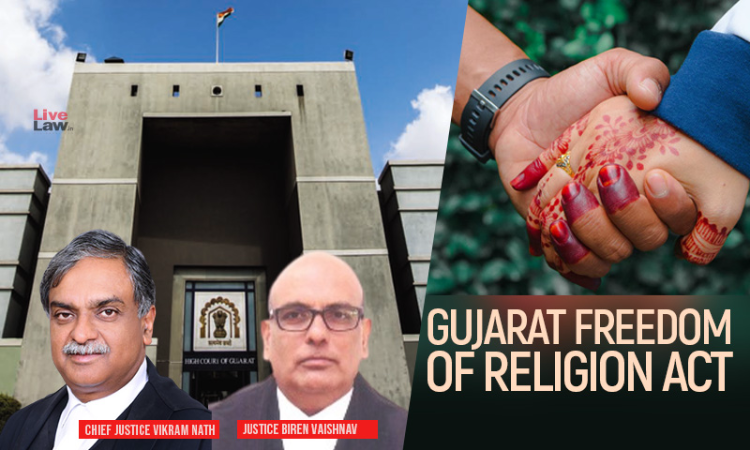Gujarat Freedom Of Religion(Amendment) Act 2021 Won't Apply To Inter-Faith Marriages Between Consenting Adults : Gujarat High Court
LIVELAW NEWS NETWORK
19 Aug 2021 12:55 PM IST

Gujarat High Court protects inter-faith marriages based on free consent by adults from undue harassment.
Next Story


